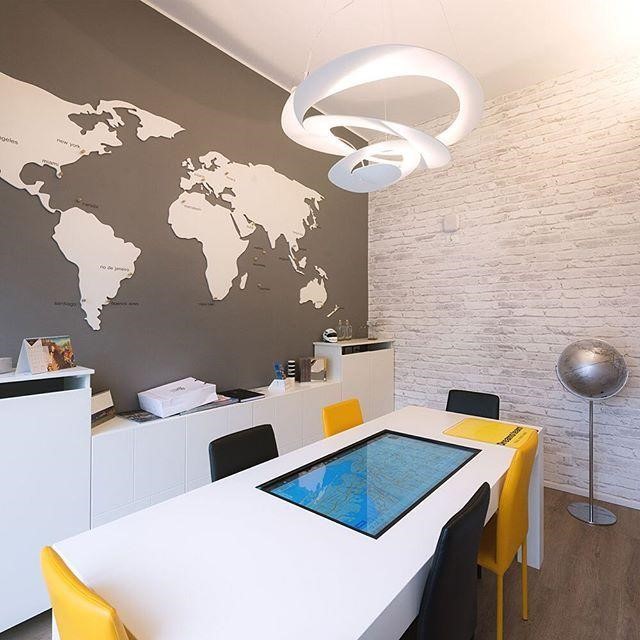Malaysia’s Travel and Tourism market is expected to grow significantly in the coming years.
Revenue in this sector is projected to reach US$6,002.00m by 2024.
With such stats, we can say business travel can be complex. Between booking flights, arranging accommodations, and ensuring traveller safety, it’s easy to feel overwhelmed. That’s where a Travel Management Company (TMC) comes in. A good TMC can be an invaluable partner, streamlining your travel program, saving your company money, and keeping your employees safe and happy on the road. But with so many TMCs out there, how do you find the right fit for your business?
This comprehensive checklist will guide you through the process, making sure you select a TMC that perfectly aligns with your company’s needs and budget.
Step 1
Define Your Needs
Before diving into the world of TMCs, take a step back and assess your company’s travel program. Here are some key questions to consider:
- Travel Volume and Profile:
How many business trips does your company take annually? What is the typical traveller profile (domestic vs. international, length of stay, etc.)?
- Travel Budget and Goals:
Do you have a specific budget for business travel? Are there any cost-saving goals you hope to achieve with a TMC?
- Technology Integration:
Does your company use any existing travel booking software? How important is seamless integration with your current systems?
- Duty of Care Concerns:
Does your company prioritise features like 24/7 traveller support and travel risk management?
Step 2:
Research and Shortlist Potential TMCs
Now that you understand your needs, it’s time to start researching potential TMC partners. Here’s where your research skills come into play:
- Industry Reputation:
Explore industry publications and online reviews to understand different TMCs’ reputations. Look for companies with a proven track record of success in your industry.
- Geographical Expertise:
Does the TMC have a strong presence in the regions where your employees travel most frequently? This ensures they have the local knowledge and resources to provide the best possible service.
- Technology Offerings:
Evaluate the TMC’s online booking tools, mobile apps, and reporting capabilities. Ensure these offerings integrate seamlessly with your existing systems and provide user-friendly functionality for your employees.
- Service Capabilities:
Does the TMC offer the specific services your company requires? Look for features like travel policy enforcement and expense management tools, personalised booking assistance, and robust traveller safety programs.
Step 3:
Request for Information
Once you’ve identified a shortlist of potential TMCs, it’s time to gather more detailed information. Send an RFI document outlining your company’s travel program needs, budget expectations, and desired services. This will help the TMCs tailor their proposals to your specific requirements. Here are some key elements to include in your RFI:
Company Overview:
Briefly describe your company, its size, and travel frequency.
- Travel Program Objectives:
Outline your expectations for a TMC partnership, including cost savings, improved efficiency, and traveller experience.
- Technology Requirements:
Specify any existing booking systems or travel management tools you use and your expectations for integration.
- Service Needs:
Detail the specific services you require, from booking and itinerary management to expense reporting and duty of care.
Step 4:
Evaluate Proposals and Conduct Demos
After receiving proposals from shortlisted TMCs, it’s time to evaluate each one carefully. Here’s what to look for:
- Alignment with Needs:
Does the proposal address your company’s specific travel program needs and objectives?
- Cost Structure:
Evaluate pricing models and compare them to your budget expectations. Look beyond the headline price and analyse the breakdown of fees and potential cost savings.
- Technology Integration:
Assess how the TMC’s technology offerings integrate with your existing systems. Can employees easily use their online booking tools and mobile apps?
- Service Highlights:
Scrutinise the details of the proposed services. Does the TMC offer robust travel policy enforcement, customisable reporting, and 24/7 traveller support?
Schedule demos with the leading contenders to get a firsthand look at their technology platform and meet the team you’d be working with. This is crucial in assessing TMC’s user-friendliness, responsiveness, and overall fit with your company culture.
Step 5:
Reference Checks and Final Decision
Before making a final decision, conduct thorough reference checks with existing clients of the shortlisted TMCs. Speak with companies of a similar size and travel profile to yours. Ask about their experience with the TMC, the level of service, and the impact on their travel program.
Finally, weigh all the factors—proposal alignment, cost structure, technology offerings, and service capabilities, and identify the TMC that best meets your company’s needs.
Remember, the right TMC will become a trusted partner, streamlining your travel program, maximising savings, and ensuring the safety and well-being of your employees on the road.
Building a Strong Partnership
Finding the right TMC is just the first step. Here are some additional tips to ensure a successful long-term partnership:
- Clear Communication:
Establish clear communication channels with your designated TMC account manager. Communicate your travel program goals, policy updates, and emerging needs regularly.
- Data Sharing and Reporting:
Regularly share travel data with your TMC to generate insightful reports. This allows for continuous improvement of your travel program through informed decision-making.
- Employee Training:
Ensure your employees understand how to use TMC’s online booking tools, mobile apps, and other relevant features. This will empower them to make informed travel decisions while adhering to your company’s policy.
- Regular Reviews and Feedback:
Schedule regular meetings with your TMC to discuss performance, identify areas for improvement, and ensure they continue to meet your evolving travel program needs.
TIO the Right Fit
Simplify Your Travel Management with TIO
TIO is a comprehensive solution for streamlining your travel experience. Our suite of tools and services empowers you to:
- Effortlessly manage travel: Simplify bookings with user-friendly tools, gain data-driven insights for informed decisions, and enjoy seamless operation through VendorHub.
- Access a world of options: T-Broker Marketplace connects you to a vast network of travel vendors, ensuring you find the perfect fit for every trip.
Make smarter travel choices: Leverage data analytics to optimise costs and select the best flights, hotels, and deals for your needs.
TIO caters to both seasoned travellers and those new to travel management. We provide the resources and support to navigate the travel landscape confidently, ensuring a seamless and stress-free journey every time.
Final Thoughts
Finding the right TMC can be a game-changer for your business travel program. Following this comprehensive checklist, you’ll be well-equipped to identify a trusted partner that delivers efficiency, cost savings, and an exceptional employee experience.
A successful TMC partnership is an ongoing journey fueled by clear communication, data-driven insights, and a commitment to continuous improvement. So, embark on this journey confidently, knowing you’re well on your way to optimising your business travel program for success. Ready to experience the TIO difference? Contact us today!
FAQs
1. Isn’t booking travel directly with airlines and hotels cheaper?
While tempting, TMCs leverage bulk buying power to negotiate significant discounts with airlines and hotels. These savings often outweigh booking directly, and TMCs can secure upgrades and other benefits.
2. What if our travel volume is relatively low?
Absolutely! Even with a limited number of trips, TMCs streamline booking, ensure policy compliance, and provide valuable travel risk management – all services that save you time and resources. Many TMCs offer tiered pricing for companies of all sizes.
3. What happens if our travellers prefer to book their flights and hotels?
No problem! Many TMCs offer self-booking tools (SBTs) that integrate with your company’s travel policy. This empowers employees to book independently while adhering to company guidelines. The TMC can still manage reporting, expenses, and duty of care.
4. How can a TMC help us ensure traveller safety during emergencies?
Think 24/7 traveller support, real-time travel risk alerts, and medical evacuation assistance. They can also help you develop comprehensive travel safety protocols.
5. Will switching to a TMC disrupt our current travel program?
Not at all! A good TMC ensures a smooth transition. They handle data migration from your existing systems and train your employees on their user-friendly platform.
6. How long does the typical TMC contract last?
Contract lengths vary but typically range from 2 to 3 years, with the option to renew. Discuss your needs with potential TMCs to find the perfect fit.
7. Red flags to watch out for when evaluating TMCs?
Be wary of TMCs offering unrealistic cost-saving guarantees or avoiding details about their technology infrastructure. Lack of transparency regarding fees and included services can also be a red flag.
8. What are the specific sustainability goals for the travel program?
Some TMCs specialise in sustainable travel solutions. They can help you track your program’s carbon footprint and recommend eco-friendly options, like carbon offsetting programs.
9. Can a TMC help manage employee travel expenses?
Yes! Many TMCs offer integrated expense management tools. This streamlines the process for employees to submit and track travel expenses, saving your company valuable time and resources.
10. How can we measure the success of our TMC partnership?
Track key metrics like travel program costs, booking efficiency, traveller satisfaction, and duty of care incidents. Regularly reviewing these metrics with your TMC allows for continuous improvement and ensures your partnership delivers value.


